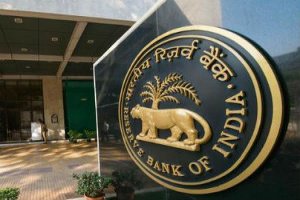Resolve stressed assets on time in your interest: RBI to banks

Reserve Bank of India(RBI) Deputy Governor N.S. Vishwanathan has urged banks for timely resolution of stressed assets in their ‘own interest’ under the new framework to extract the best value and underlined the need for dealing only in “genuine” cases.
Daily Current Affairs Quiz 2019
The central bank will be coming out with the final guidelines for private and foreign bankers’ compensation soon, he said, speaking at the annual industry event Fibac.
Vishwanathan said the RBI’s revised framework on resolution of stressed assets introduced on June 7 is “less intrusive” as it gives banks the leeway to draft their own resolution plans for a particular case.
“Timely resolution is very important. I’d request you to ensure that the resolutions are done in time, not just for the regulatory requirement but also because it will result in better valuation going forward,” he said.
“We’ve given a lot of freedom to banks to determine various contours. We are making less intrusive regulations and hope that banks will use this to deal with genuine stress in their balance sheets to address the problem,” he added.
The RBI issued the new NPA recognition and resolution guidelines on June 7 after the Supreme Court had in April declared the earlier one issued on February 12, 2018 as ultra vires.
The new framework lays focus on better coordination between banks while dealing with a stressed assets by mandating them to sign inter-creditor agreements and decide on a resolution strategy in 30 days, which will have to be implemented in 180 days.
Meanwhile, Vishwanathan also said the RBI will soon be coming up with the final guidelines for top management compensation.
“Last year we had issued draft guidelines on revised compensation policy, aligning it with global guidelines. We have got excellent comments from the market, bankers and HR practitioners and we will soon come out with final guidelines on the revised compensation policy,” he said.
It can be noted that in the draft guidelines, the RBI had proposed measures including making 50 percent of the compensation of senior officials of private and foreign banks ‘should be variable”.
According to media reports, the central bank is also planning a “clawback” clause, such that a key official has to pay past bonuses and incomes if she has been found to have erred in any aspect.
Vishwanathan reiterated that the country has adopted a flexible approach when it comes to adopting the post global financial crisis regulations formed at the global level, which includes being conservative on a few things and consciously deviating in others.
The strategy is to “calibrate” the regulations in sync with the local requirements, he said, listing out the deviations which have been opted for.
The deviations include net stable funding ratio which has been deferred to April 2020, adopting group exposures framework in April 2020 even after adopting the large exposure framework in April 2019.
He said the biggest lesson from the crisis was the importance of liquidity, and stressed that Indian regulators had always been valuing the same for many years.